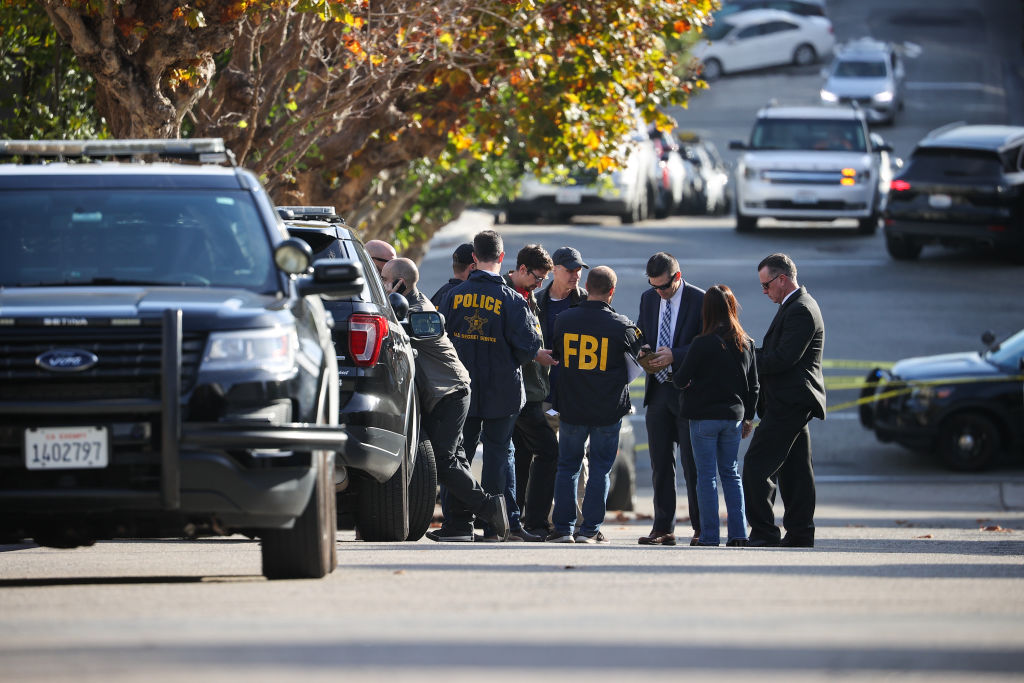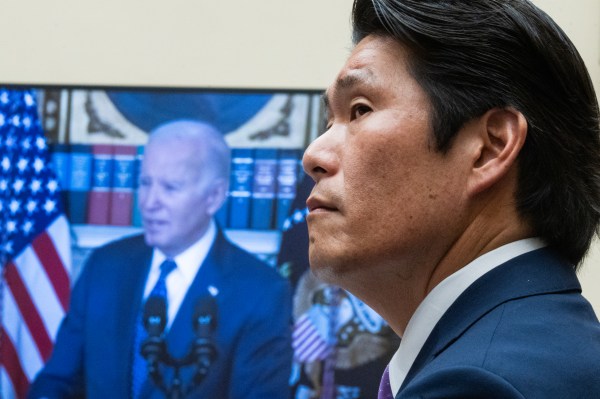Last week’s home invasion and attack on House Speaker Nancy Pelosi’s husband intensified an issue at the top of mind for members of Congress: how to boost security for lawmakers and their families.
Pelosi’s 82-year-old husband, Paul, is expected to recover from the attack. The speaker was in Washington, D.C., on the night David DePape allegedly broke into her San Francisco home, asking where she was. (Read yesterday’s Morning Dispatch for more details on the break-in and DePape’s apparent espousal of numerous right-wing conspiracy theories.)
A Justice Department criminal complaint against DePape released Monday afternoon indicates the attack was politically motivated:
DEPAPE stated that he was going to hold Nancy hostage and talk to her. If Nancy were to tell DEPAPE the “truth,” he would let her go, and if she “lied,” he was going to break “her kneecaps.” DEPAPE was certain that Nancy would not have told the “truth.” In the course of the interview, DEPAPE articulated he viewed Nancy as the “leader of the pack” of lies told by the Democratic Party. DEPAPE also later explained that by breaking Nancy’s kneecaps, she would then have to be wheeled into Congress, which would show other Members of Congress there were consequences to actions.
The incident is one of several recent attacks on members of Congress: Former Rep. Gabby Giffords of Arizona was shot at a constituent meeting in 2011. A 2017 shooting targeting Republicans at a congressional baseball practice seriously injured Rep. Steve Scalise of Louisiana. And on January 6, 2021, pro-Trump rioters attacked the U.S. Capitol, seeking to overturn the presidential election results. And there have been close calls with Rep. Lee Zeldin and Supreme Court Justice Brett Kavanaugh this year. With ongoing election denial and conspiracy theories such as QAnon continuing to flourish, members want to prevent the rising tide of threats from turning to successful attacks—or even assassinations.
“I wouldn’t be surprised if a senator or House member were killed,” Sen. Susan Collins, a Maine Republican, told the New York Times last month. “What started with abusive phone calls is now translating into active threats of violence and real violence.”
The U.S. Capitol Police, the federal law enforcement agency tasked with protecting Congress, investigated 9,625 threats and concerning statements targeting lawmakers and Congress last year. It’s a massive increase over the 3,939 threats Capitol Police investigated in 2017.
Preventing attacks requires a less reactive posture, police say, so the agency has responded by opening field offices in Florida and California, where it said the majority of threats originate. It has also reportedly doubled the number of officers investigating threats over the past year. But the Capitol Police force on the whole has struggled to remain staffed since more than a hundred officers departed in the year after January 6, 2021. It has been heavily recruiting to replace lost numbers and has had to rely on security contractors in some cases to keep the Capitol guarded.
As House speaker, Pelosi has a security detail that protects her most of the time. But Sen. Chris Murphy, a Connecticut Democrat, told Politico Monday that it may be a good idea to extend that security to Pelosi’s family members.
He also suggested lowering the threshold at which Capitol Police provide a temporary, around-the-clock detail for rank-and-file lawmakers who are being threatened. Sen. Ted Cruz currently has such a detail, and Sen. Marco Rubio of Florida had one in 2017 amid concerns about an assassination plot by Venezuelan officials.
When they aren’t in the Capitol, lawmakers facing threats typically must obtain private security or work out an arrangement with local law enforcement for when they are in their home states.
Funding is a key component of almost any security enhancement. This summer, the House sergeant-at-arms tried to address the problem by announcing it would cover up to $10,000 in security upgrades for lawmakers’ homes and related monthly fees.
A New York Times analysis of campaign and congressional spending data found that members of Congress have spent more than $6 million on security since the start of 2021. Big spenders include Democratic Sen. Raphael Warnock of Georgia, who has dedicated almost $900,000 to security since being sworn in last year, and Cruz, who has spent nearly $600,000 on security since the beginning of 2021.
Members of the House committee investigating the January 6, 2021, attack on the Capitol have also faced more threats than other lawmakers, spurring new spending and other security arrangements. Rep. Liz Cheney, the Republican who serves as vice chair of the panel, spent $70,000 on security, according to the Times review of data.
Rep. Adam Kinzinger, the other Republican on the committee, shared some of the threats and vitriol his office receives in a disturbing three-minute video in July. He told CNN Friday that when he sought additional security from Capitol Police, the response was essentially, “get in line.”
Rep. Debbie Dingell, a Michigan Democrat, said the attack on Pelosi’s husband “must be a wake-up call” because “the fear and hatred dividing this country are a real danger.”






Please note that we at The Dispatch hold ourselves, our work, and our commenters to a higher standard than other places on the internet. We welcome comments that foster genuine debate or discussion—including comments critical of us or our work—but responses that include ad hominem attacks on fellow Dispatch members or are intended to stoke fear and anger may be moderated.
With your membership, you only have the ability to comment on The Morning Dispatch articles. Consider upgrading to join the conversation everywhere.